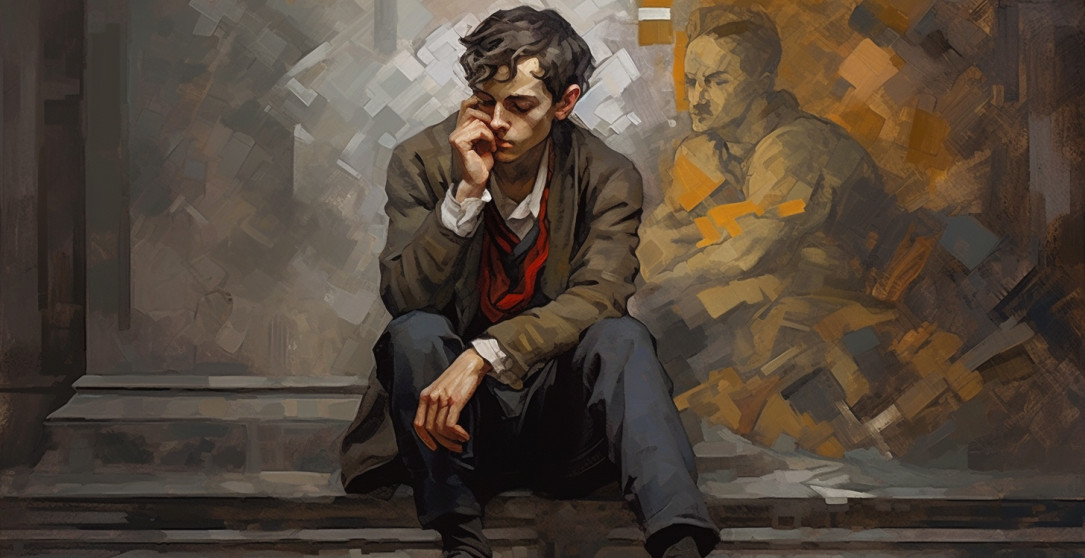We hear the term ‘critical thinking’ a lot these days, so why do schools and many governments actively discourage it, and what is it exactly?
Critical thinking is the process of actively and skilfully analysing, evaluating, and synthesizing information and arguments in a rational and logical manner. It involves applying objective and systematic reasoning to assess the validity, reliability, and relevance of information and ideas. Critical thinking aims to go beyond accepting information at face value and instead encourages individuals to question, challenge, and explore different perspectives and assumptions.
Key elements of critical thinking include…
- Analysis:
Breaking down complex ideas or information into its component parts to understand their relationships and implications. - Evaluation:
Assessing the credibility, accuracy, and quality of evidence, arguments, and sources. - Inference:
Drawing logical and reasonable conclusions based on available information and evidence. - Interpretation:
Making sense of information by considering its context, biases, and underlying assumptions. - Problem-solving:
Applying logical reasoning and evidence-based decision-making to identify and resolve problems or challenges. - Reflection:
Engaging in self-awareness and self-assessment to recognize personal biases, assumptions, and limitations in thinking. - Open-mindedness:
Being receptive to different perspectives and considering alternative viewpoints to broaden understanding and avoid confirmation bias. - Communication:
Articulating ideas, arguments, and conclusions effectively through clear and concise expression, both verbally and in writing.
Critical thinking is a valuable skill in various areas of life, professional settings, decision-making, problem-solving, political analysis, and engaging in informed discussions and debates. It helps individuals develop a deeper understanding, make better-informed judgements, and become more independent and analytical thinkers.
Why authoritarian entities discourage critical thinking
Critical thinking is often discouraged by authoritarian entities for a number of reasons. Here are some examples…
- Control and Stability:
Authoritarian regimes prioritize maintaining control and stability, and critical thinking can be seen as a threat to their authority. Critical thinkers are more likely to question and challenge the government’s policies, decisions, and actions. This can undermine the regime’s desired narrative and potentially lead to dissent or opposition. - Propaganda and Manipulation:
Authoritarian entities often rely on propaganda and manipulation to shape public opinion in their favour. Critical thinking can expose the flaws and inconsistencies in propaganda narratives, making it harder for the government to control the information flow and manipulate public perception. - Suppression of Dissent:
Authoritarian entities often suppress dissent and opposition. Critical thinking enables individuals to analyse and question the government’s actions, leading to a higher likelihood of dissent and resistance. By discouraging critical thinking, the regime aims to limit the emergence of alternative viewpoints and maintain a more compliant population. - Preservation of Ideology:
Authoritarian regimes may have specific ideologies or belief systems that they seek to uphold and enforce. Critical thinking encourages independent thought, which can lead individuals to question or reject the dominant ideology. Suppressing critical thinking helps preserve the regime’s ideological control and prevents the spread of ideas that challenge its core principles. - Fear of Unrest and Revolution:
Authoritarian entities often fear social unrest and revolutions that could threaten their power. Critical thinking can play a significant role in mobilizing and organizing people for collective action. By discouraging critical thinking, the government aims to prevent the development of a well-informed and engaged citizenry capable of challenging the existing power structure.
While authoritarian entities may discourage critical thinking, individuals and groups can still engage in the process privately or in underground networks. They may seek alternative sources of information, engage in covert discussions, or find creative ways to express dissent and challenge the status quo. Critical thinking remains a powerful tool for questioning authority, promoting human rights, and driving social change even in oppressive environments.
Which political ideologies in particular discourage critical thinking?
While any political ideology can potentially discourage critical thinking if it prioritizes conformity and unquestioning adherence to a specific world-view, some ideologies may have a higher tendency to discourage critical thinking. Here are some examples…
- Totalitarianism:
Totalitarian ideologies, characterized by absolute state control over all aspects of society, often discourage critical thinking. They seek to create a unified and unquestioning population that adheres to the prescribed ideology without questioning or challenging it. - Authoritarianism:
Authoritarian ideologies prioritize strong centralized power and limited political freedoms. Critical thinking may be discouraged or suppressed to prevent dissent and maintain control over the population. - Fundamentalism:
Fundamentalist ideologies, whether religious or ideological, emphasize strict adherence to a set of beliefs or principles. Critical thinking can be seen as a threat to the established dogmas and doctrines, and may be discouraged or condemned. - Nationalism:
While not inherently discouraging critical thinking, extreme forms of nationalism can discourage critical examination of nationalistic narratives or policies. They may foster a sense of unquestioning loyalty and pride in one’s nation, making critical analysis of nationalistic actions or beliefs less likely. - Dogmatism:
Any ideology or belief system characterized by rigid adherence to a set of principles can discourage critical thinking. Dogmatic ideologies emphasize unquestioning loyalty and adherence to predetermined doctrines, leaving little room for critical examination or alternative viewpoints.
In conclusion, even in societies where critical thinking may face obstacles, individuals and groups can still cultivate and exercise critical thinking skills. Civil society organizations, educational institutions, and independent media outlets often play a crucial role in promoting critical thinking and providing alternative viewpoints.
The internet and digital technologies have expanded access to information and diverse perspectives, empowering individuals to engage in critical thinking on a global scale. Although, governments in some countries have also taken steps to regulate or control online content to shape public opinion, overall, the extent to which governments discourage or promote critical thinking depends on various factors, including their political ideologies, policies, and the level of transparency and respect for democratic principles within a society.
